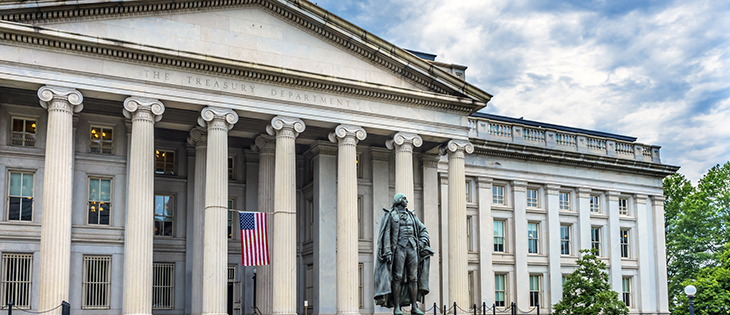Government Shutdown’s Impact on the SEC, IRS and Treasury
Federal financial enforcement and regulatory agencies say to expect delays following the government shutdown.

When the government shutdown ended on Jan. 25, employees at federal enforcement and regulatory agencies headed back to work, but the backlog created during the funding lapse is likely to create headaches for months to come.
The nearly 4,400 staff employees at the Securities and Exchange Commission were reduced to fewer than 300 during the shutdown. According to the SEC’s published contingency plans, the agency discontinued most of its ongoing enforcement litigation and all of its non-emergency rulemaking and no-action letters. Approval of applications for registration by investment advisers and responses to complaints, tips or referrals also ceased during the shutdown.
Individuals and corporations were still able to file reports with the SEC, but those filings could not be processed until the government reopened its doors. Due to the gap, the time it will take for the agency to catch up on tasks like reviewing IPO paperwork and examining routine disclosure filings is likely to be delayed. Investment advisers under examination may also see delays in processing times.
Shutdown’s Effects on IRS and Treasury
This tax-filing season, already guaranteed to be heavy due to the implementation of the massive 2017 tax overhaul, may see delays to refunds and audits as a result of the shutdown.
The majority of IRS staff required to work were focused on preparing for the upcoming tax-filing season. Although the agency attempted to retain 46,000 of its employees during the shutdown, many refused to show up for work, and taxpayers who called with questions about their tax returns faced hours-long hold times.
However, the IRS says its now working hard to resume normal operations and help taxpayers as much as possible.
Portions of the tax reform law, including the newly-created opportunity zone program, are still awaiting final regulations from the Department of Treasury and their implementation will likely be delayed.


